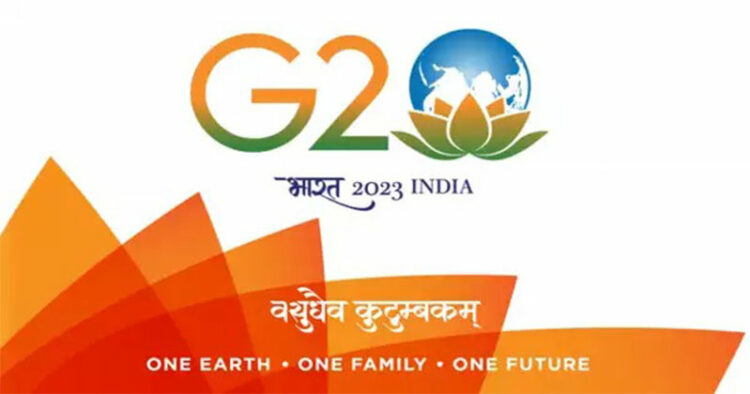India’s Republic democratic identity in the current term is now 73 years old.
But this nation is an old civilisation. It is also a matter of fact that the antiquity of Indian civilisation is enormous. Historians and experts have always marvelled at the diversity of Indian cultures and their civilisational ethos. The Bhagavad Gita, the Sermon at Sarnath and the teachings of Upanishads had left intellectuals across the globe awestruck and also wise.
Of course, in other parts of the world, greater unification of the human race and contributions of some civilisations have been prosperous. But if philosophy and literary cultures were natural strengths of the Greeks, in India, the real influence was from the religious background — Hinduism and Buddhism. Buddhism marked a decisive turn of events for a considerable period, reflecting transformations of many types.
But the world will have to be told that there was a stark difference in perception and philosophy vis-à-vis the synthesis seen, in other word, between Christianity and Greek philosophy. Experts will back the argument that the Church leaders were even nourished by Greek philosophy. But in the words of Mexican expert and an eminent scholar, Octavio Paz: “In contrast, the Muslim theologians did not look at the Vedas or the Upanishads with the same veneration with which St Augustine or St Thomas Aquinas studied Plato or Aristotle”.
Moreover, another chapter in history needs to be analysed properly or objectively.
The coexistence of Hinduism and Islam has been generally marked by rivalries, which have also often turned into violence. As stated above, religion has always formed a foundation of Indian life. This also brought the play of ‘rules’, discipline, and obedience. Hence, talk about Indian families; there are always rules. Even the caste system follows a set of own rules. Respect is also linked to religious doctrine for Hindus. Hence, a Guru, including a music teacher, is not only to be obeyed but his feet are touched and virtually worshipped.
Mahabharata shows a classic example when Eklavya completes his entire training by mere dedication and worshipping the statue of Guru Dronacharya.
During the British period, when the freedom struggle was being driven by a galaxy of leaders, including the illustrious Bal Gangadhar Tilak, it is a matter of fact again that the profound religiosity of the Hindus had become more assertive with the injection of passion called Nationalism. Thus, there is little surprise today that the BJP’s essential political principle is based on the ideology of Hindutva and Nationalism. Nothing is communal about it; the world ought to be told this.
In this context, it will be relevant to refer to the elevation of Rishi Sunak as Britain’s first Hindu Prime Minister. Of course, to have a Hindu inside 10 Downing Street may be something astonishing. Still, it was also a moment of great joy for many Indians, even as some of Sunak’s diplomatic and practical policies could be either pro or anti-India.
But to thousands of Indians, Sunak’s faith may not be so relevant. Still, it is a matter of pride that someone of ‘Indian heritage’ has reached the highest office in a country that once ruled India and also brought in Christianity in large numbers. The feeling is inherent, and it is not being anti-Christian or hating a Christian tribal from North East India or anywhere else. As we write these lines, it will be relevant to point out how a Naga Christian leader and a BJP national vice president M Chuba Ao wanted to make it clear that there are no inherent contradictions or confrontations for him being a Christian and also a BJP leader.
Take a more practical issue at hand. The Hindu assertion of the community’s right vis-a-vis a Supreme Court judgement on the Ram temple at Ayodhya has been widely reported but also misinterpreted. The international community may not appreciate it, that’s one thing, but they deserved to be told nevertheless.
It is a matter of fact and now established through the Supreme Court order that in 1528, Emperor Babur had levelled a grand temple dedicated to Ram and built a mosque. The highest court of litigation has passed the verdict after years of litigation and all sorts of studies by Archaeological authorities. This Hindu assertion also has nothing to do with communalism as being branded time and again by vested interests in India and also overseas.
Religion and religiosity were centres of strength in India. The revolt against Mughal rulers and the use of the celebration of Ganesh Puja in Maharashtra under the guidance of Tilak was also guided essentially by love for the nation and also by the commitment towards own faith and culture. If one moves to Mahatma Gandhi, religion is also a vital element.
His excellent governance plank was linked to ‘Ram rajya’ — where everyone gets the fruits of humankind and his inclusive approaches vis-a-vis Su-rajya (good governance). Critics will agree that Gandhi’s political actions were often based on Leo Tolstoy’s pacifism. Thoreau’s civil obedience also influenced him. But Gandhiji was a proper traditional Hindu, but he saw the need for reforms as is required in every human society.
Finally, let us come to the Indian Constitution as its definition of a Republic is linked. The Indian Constitution has withstood numerous separatist movements. In the US, nationhood is related to the future — on the notion of creating a ‘common future’. But a sharp contrast in India is that the tenets of a critique of the past essentially define nationhood. And that past is not merely history. In India, history is seen as a passing phase. The more fundamental facet is ‘religion’, and the people’s faith is in the Hindu identity more from the civilisational perspective.




















Comments